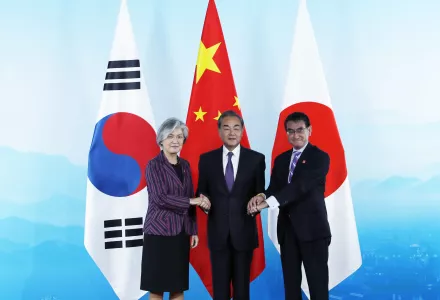Trilateral Cooperation in the Shadow of a Nuclear North Korea
A Project on Managing the Atom seminar with Yeajin Yoon, predoctoral research fellow with the Project on Managing the Atom and International Security Program.
A Project on Managing the Atom seminar with Yeajin Yoon, predoctoral research fellow with the Project on Managing the Atom and International Security Program.

What explains the formation, formalization, and evolution of trilateral cooperation among the most militarily and economically dominant states in Northeast Asia, namely the Republic of Korea, Japan, and the People's Republic of China? As U.S.-North Korean nuclear talks have stalled and geopolitical tensions have increased, it has become more critical to understand how and why the major Asian powers construct institutions and whether such efforts contribute to regional stability and peace. At a time of heightened rivalries, will Korea, Japan, and China be able to put aside their differences and cooperate to address common challenges ranging from North Korea's nuclear program to regional nuclear safety? Drawing on extensive primary sources and interviews, Yeajin Yoon explains that while trilateral cooperation has not resulted in any breakthroughs vis-à-vis North Korea’s nuclear program, it has led to important cooperative outcomes in the field of nuclear safety in the aftermath of the 2011 Fukushima nuclear disaster.